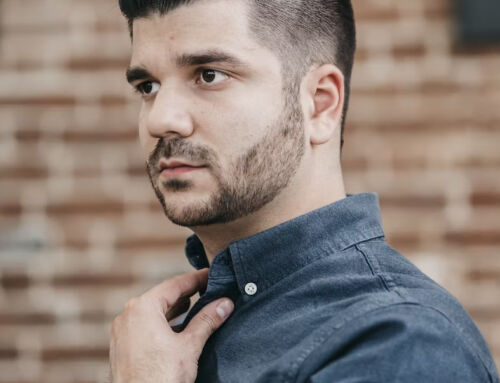As men and women age, many notice a loss of hair volume or a receding hairline. While most people are unhappy with the results of hair loss, the good news is that they don’t have to settle for this unwanted sign of aging. At the New England Center for Hair Restoration, patients can undergo a full range of hair loss treatments to restore volume and density to the hairline.
One of the most popular methods of hair loss treatment is hair transplant surgery. A hair transplant involves placing donor hair follicles at the site of hair loss. With the advanced surgical techniques available, hair transplant surgery can provide effective and natural-looking results.
Prior to undergoing hair transplant surgery, patients should be aware of the potential side effects of treatment. Bruising around the eyes after hair transplant at our Boston, MA practice is one common surgical side effect. Our doctors are happy to discuss this side effect in further detail and provide patients with tips for minimizing discomfort while they recover from hair transplant surgery.
Hair Transplant Side Effects
As with any surgical procedure, patients should expect to experience some side effects during recovery from hair transplant surgery. As most people would probably expect, the majority of hair transplant side effects directly impact the scalp, at both the donor site and transplant site. Common hair transplant side effects include mild pain or discomfort, an itchy scalp, minor bleeding, swelling, hair shedding, and numbness.
However, the side effects of hair transplant treatment may not be isolated to the scalp. It is actually quite common for patients to develop swelling around the eyes after hair transplant surgery, and many patients experience bruising around the eyes as well. The severity of bruising can vary, with some patients experiencing minimal discoloration, and others developing the look of a black eye.
In most cases, the side effects of hair transplant surgery are short-lived. Side effects should begin to clear up within the first week of hair transplant recovery. Patients who do develop bruising and swelling around the eyes typically see the worst symptoms around the third or fourth day following treatment. After that, bruising and swelling will slowly dissipate until the eyes regain their usual appearance.
Dealing with Bruising and Swelling
If bruising and swelling develop around the eyes, it can cause some discomfort. Although these symptoms should dissipate shortly, it is ideal to have some tips for minimizing these symptoms and encouraging healing. The following are some useful care tips for those dealing with bruising and swelling around the eyes:
- Apply cold compresses frequently. Cold packs can be applied every hour for around 15 to 20 minutes at a time.
- Take over-the-counter pain medication as directed to reduce pain.
- When resting, keep the head slightly elevated to promote proper blood flow.
- Gently massage the area surrounding the bruise to encourage blood flow.
With proper care, patients should notice a significant decrease in bruising and swelling within a week of hair transplant treatment.
Schedule an Appointment
Hair transplant surgery can add thickness and volume to a thinning, receding hairline. If you are interested in restoring your head of hair and would like to learn more about the hair loss treatments offered at the New England Center for Hair Restoration, schedule an appointment with one of our experienced doctors at your earliest convenience.
COVID-19 Update: we are offering an initial hair transplant for the incredible price of $6,000! 3rd party financing is available with monthly payments as low as $119 per month. Call 800-313-HAIR or click here to learn more.






